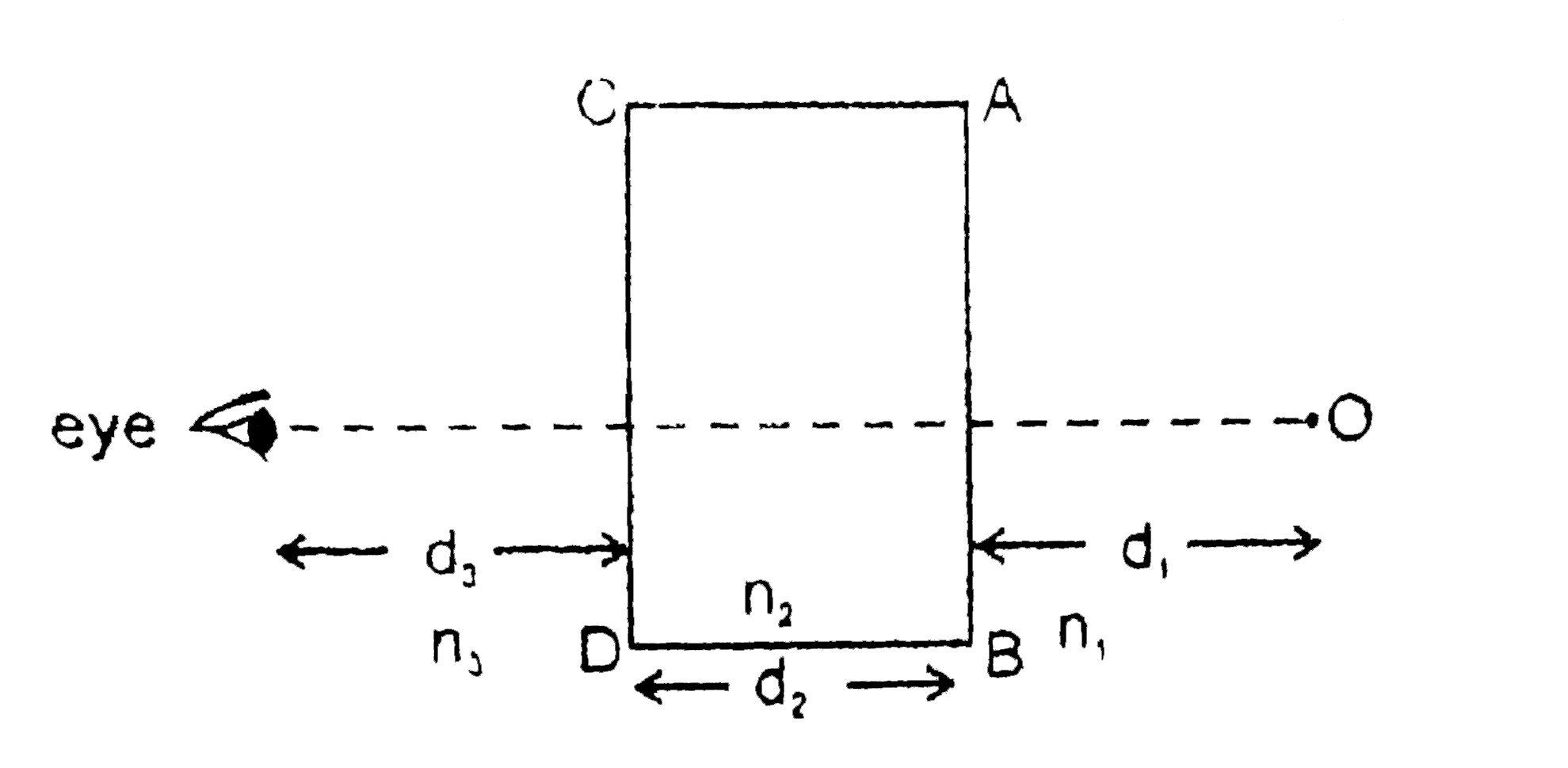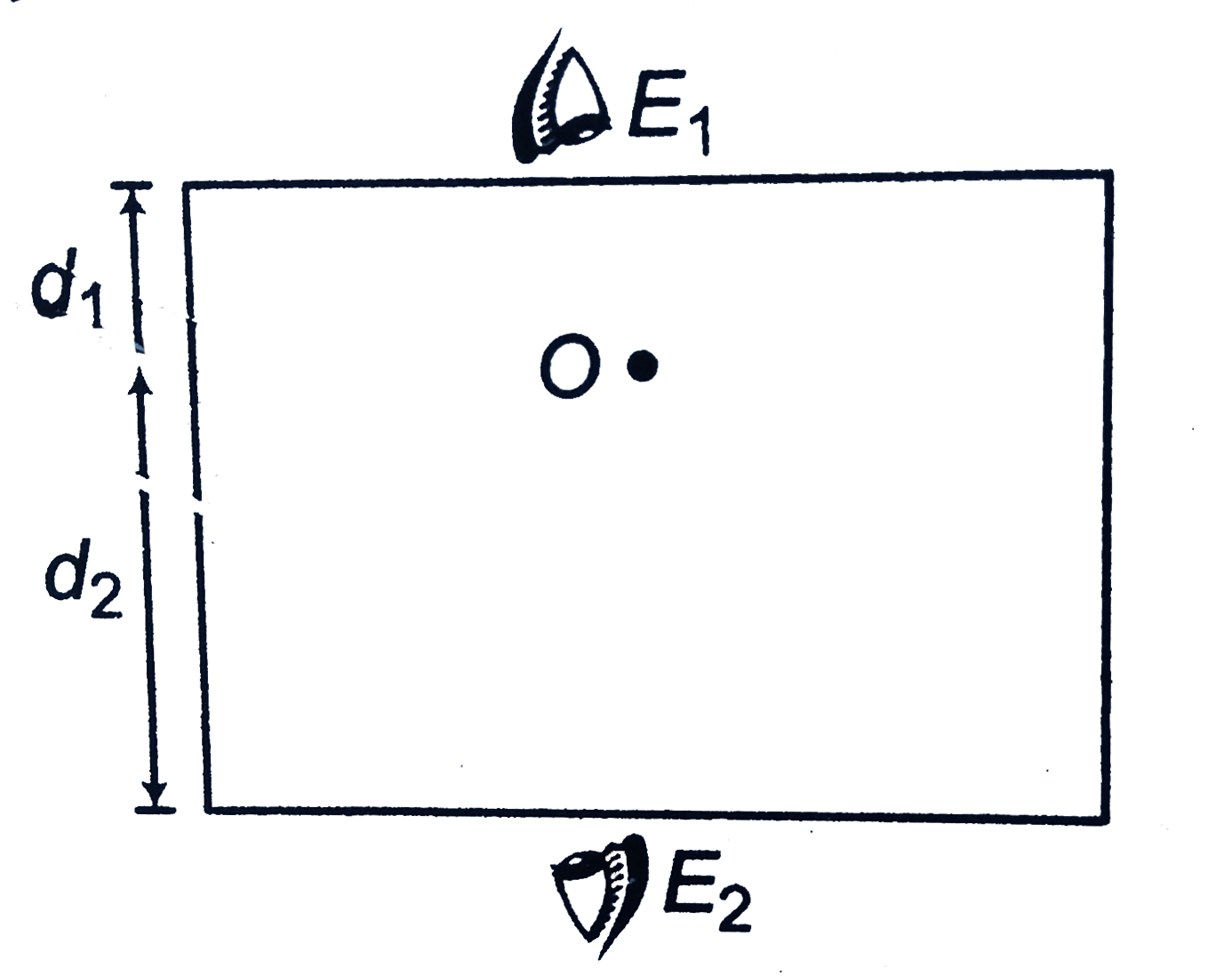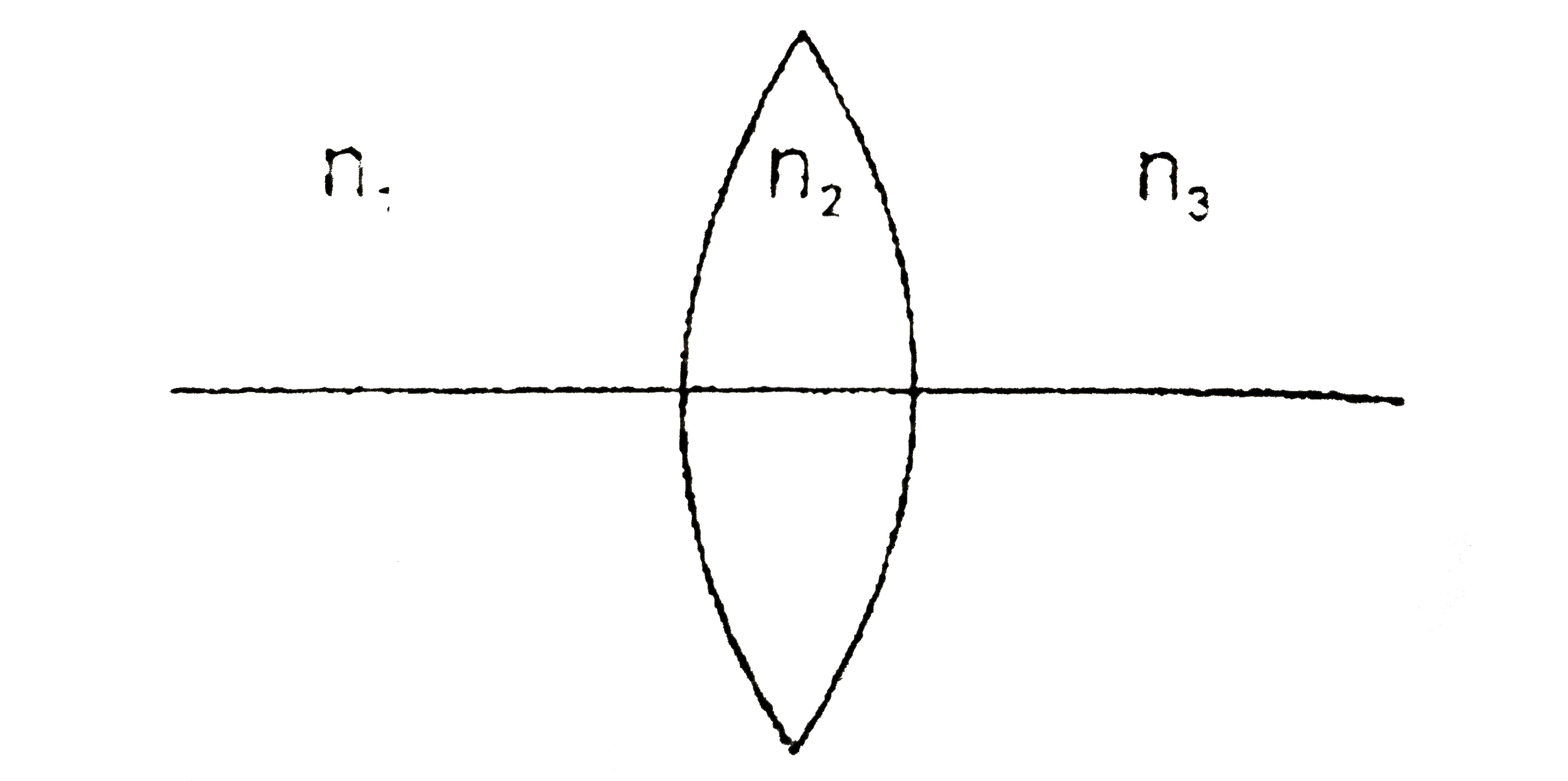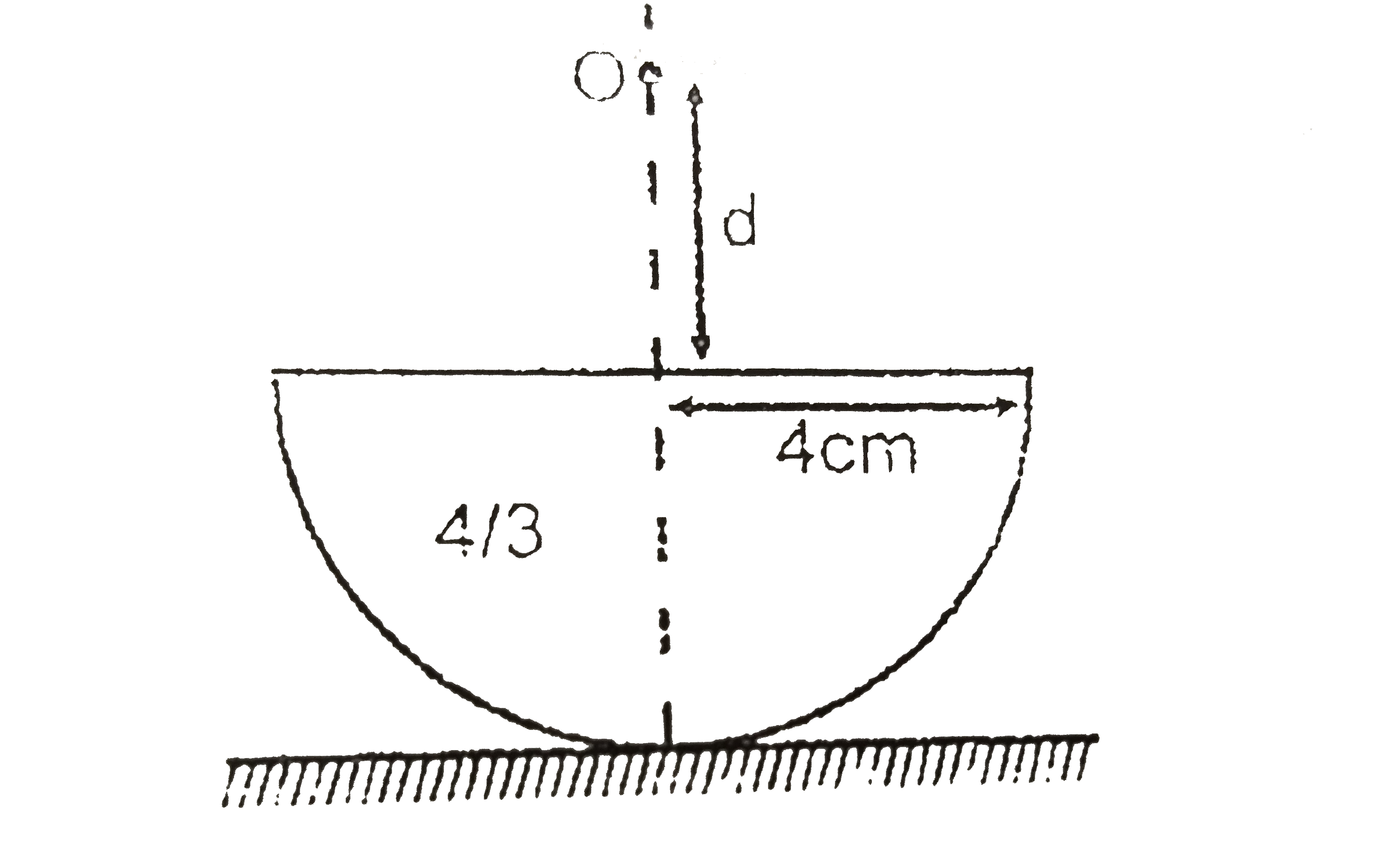There is a slab of refractive index placed as shown. Medium on two side are and . Width of slab is . An object is placed at distance from surface and observer is at distance from surface . Given air [ref. index =1] and is glass [ref. index ], and .
![There is a slab of refractive index n(2) placed as shown. Medium on two side are n(1) and n(3). Width of slab is d(2). An object is placed at distance d(1) from surface AB and observer is at distance d(3) from surface CD. Given n(1)= air [ref. index =1] and n(2) is glass [ref. index = 3//2], d(1) = 12 cm and d(2) = 9 cm,d(3) = 4 cm. If object starts to move with speed of 12 cm//sec towards the slab then find the speed of image as seen by observer [given n(3)= air =(ref. index =1)].](https://d10lpgp6xz60nq.cloudfront.net/physics_images/RES_DPP_PHY_XII_E01_114_Q01.png)
If object starts to move with speed of towards the slab then find the speed of image as seen by observer [given air =(ref. index )].
none of these
The correct Answer is:C
Apparent distance (t)
but &
but and are constant when only object is moving
So
.
Topper's Solved these Questions
- DAILY PRACTICE PROBLEMBOOK - RESONANCE ENGLISHCHAPTER - DAILY PRACTICE PROBLEMEXERCISE - DPP No.9
20 Videos
- DAILY PRACTICE PROBLEMBOOK - RESONANCE ENGLISHCHAPTER - DAILY PRACTICE PROBLEMEXERCISE - DPP No.10
9 Videos
- DAILY PRACTICE PROBLEMBOOK - RESONANCE ENGLISHCHAPTER - DAILY PRACTICE PROBLEMEXERCISE - DPP No.7
20 Videos
- CURRENT ELECTRICITYBOOK - RESONANCE ENGLISHCHAPTER - CURRENT ELECTRICITYEXERCISE - High Level Problems (HIP)
19 Videos
- ELECTRO MAGNETIC WAVESBOOK - RESONANCE ENGLISHCHAPTER - ELECTRO MAGNETIC WAVESEXERCISE - Exercise 3
27 Videos
Similar Questions
There is a slab of refractive index n2 placed as shown. Medium on two side are n1 and n3. Width of slab is d2. An object is placed at distance d1 from surface AB and observer is at distance d3 from surface CD. Given n1= air [ref. index =1] and n2 is glass [ref. index =3/2], d1=12cm and d2=9cm,d3=4cm.

If n3=44 then distance of image of object seen by oberver is :
View SolutionLight enters in a glass slab of refractive index 3/2 and covers a distance 20 cm. The optical path of it is
View SolutionRefractive index of the glass slab is 1.5. There is a point object O inside the slab as shown. To eyeE1 object appears at a distance of 6cm (From the top surface) and to eye E2 it appears at a distance of 8cm (from the bottom surface). Find thickness of the glass slab.

View SolutionA point object is placed at the center of a glass sphere of radius 6cm and refractive index 1.5. The distance of virtual image from the surface is
View SolutionGiven n1=50,n2=40,σ1=9,σ2=6,d1=4,d2=5
Find the combined standard deviation.
View SolutionAn equiconvex lens of refractive index n2 is placed such that the refractive index of the surrouding media is as shown. The lens :

View SolutionAn image is formed at a distance of 100 cm from the glass surface with refractive index 1.5, when a point object is placed in the air at a distance of 100 cm from the glass surface. The radius of curvature is of the surface is
View SolutionA glass slab of thickness 3 cm and refractive index 3/2 is placed on ink mark on a piece of paper. For a person looking at the mark at a distance 2 cm above it, the distance of the mark will appear to be in cm
View SolutionA denser medium of refractive index 1.5 has a concave surface of radius of curvature 12 cm. An object is situated in the denser medium at a distance of 9 cm from the pole. Locate the image due to refraction in air.
View SolutionA glass hemispher of refractive index 4/3 and of radius 4cm is placed on a plane mirror. A point object is placed on axis of this sphere at a distance 'd' from O as shown in the figure. If the final image is formed at infinity, then find the value of d in mm .

View Solution
